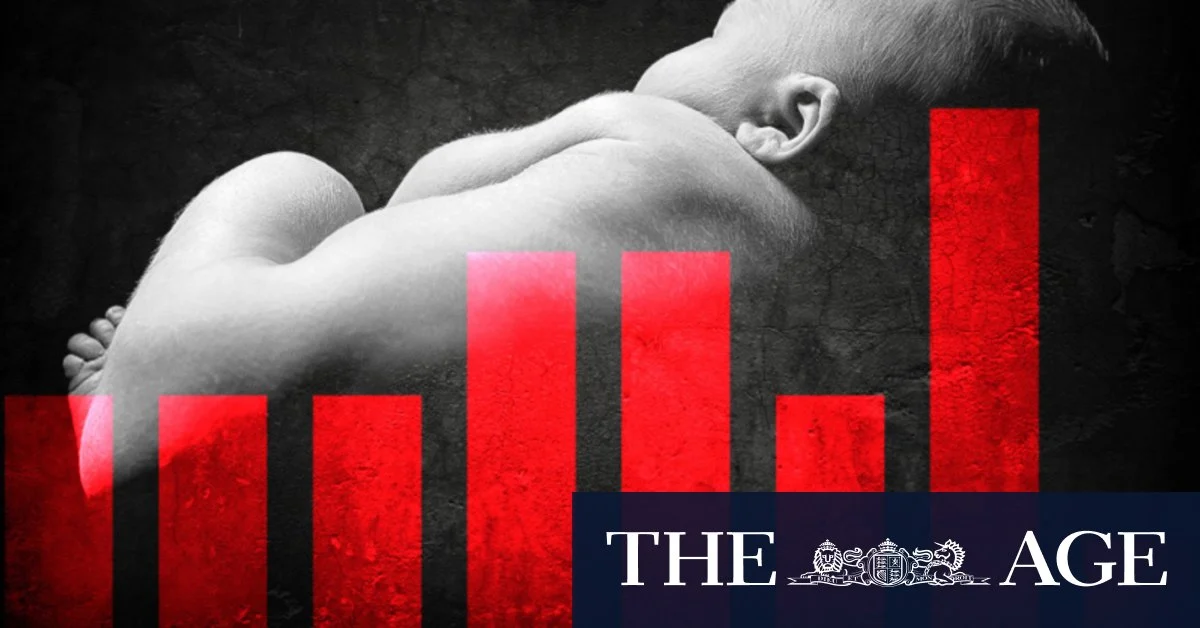Syphilis infections among women of reproductive age have more than doubled from 99 cases in 2016 to 274 cases in 2023, a trend that concerns health experts including McGrath.
The spread of the disease is linked to changing sexual behaviours, including a rise in sex without condoms.
“We are seeing an increase in sexually transmitted infections across the board and that includes chlamydia and gonorrhea,” McGrath said.
He said the new screening regime would identify people who acquire syphilis during pregnancy and ensure they receive treatment, which involves an injection of penicillin. Early treatment prevents syphilis from passing through the placenta and infecting the fetus.
“We are mindful that people’s partners are often the source of syphilis as well, and they may not know what their partners have been doing, which makes it awkward,” he said. “The screening is the best way to do it.”
Loading
Under new recommendations recently issued by Victoria’s chief health officer, Dr Tarun Weeramanthri, pregnant women should be tested for syphilis at their first antenatal visit, between 26 and 28 weeks and at 36 weeks or birth. These recommendations mirror new national guidance aimed at driving down rising syphilis cases.
Syphilis is often referred to as “the great imitator” because its symptoms, which can include rashes, skin lesions, headaches and fever, often mimic other infections. However, many patients report not having any symptoms at all, highlighting the importance of screening.
Dr Nisha Khot, vice-president of the Royal Australian and New Zealand College of Obstetricians and Gynaecologists, said she was surprised by the number of pregnant women she was treating for syphilis.
“It wasn’t something I was expecting in this day and age,” she said. “We thought it had disappeared from the Western world.”

Dr Nisha Khot is among the doctors now treating patients for syphilis.Credit: Justin McManus
Dr Jeremy Carr, a paediatric infectious diseases physician at Monash Children’s Hospital, said his health service regularly treated pregnant women infected with syphilis.
“We have several children every week that we need to follow up to ensure that they haven’t contracted syphilis and that is not necessarily an easy thing to do,” he said.
Babies born to mothers infected with syphilis must have repeated blood tests over a six to 12-month period. Infants who go on to develop an infection are treated with penicillin, which may be administered intravenously in hospital over 10 days.
Carr said almost all babies who went on to develop syphilis in early childhood had no symptoms at birth. “But over the first few years they develop lifelong disabilities in terms of neurological symptoms, development, hearing, vision difficulties,” he said. “It’s a silent infection that can have long-lasting impacts.”
He said congenital syphilis was an entirely preventable disease through testing and equitable and accessible healthcare during pregnancy.
The federal Health Department says women of reproductive age, men who have sex with men and Aboriginal and Torres Strait Islander people are at higher risk of infectious syphilis.
While many people have no symptoms, early signs of the disease include sores or ulcers on the genitals or mouth. As the disease progresses, those infected might experience rashes, skin lesions, swollen lymph nodes, hair loss, joint aches, fatigue and headaches. If untreated, the infection can cause dementia, lung and heart failure, brain infections, blindness and death.
People can protect themselves from syphilis by using condoms, getting tested regularly for STIs and by avoiding sharing needles if they inject drugs.


